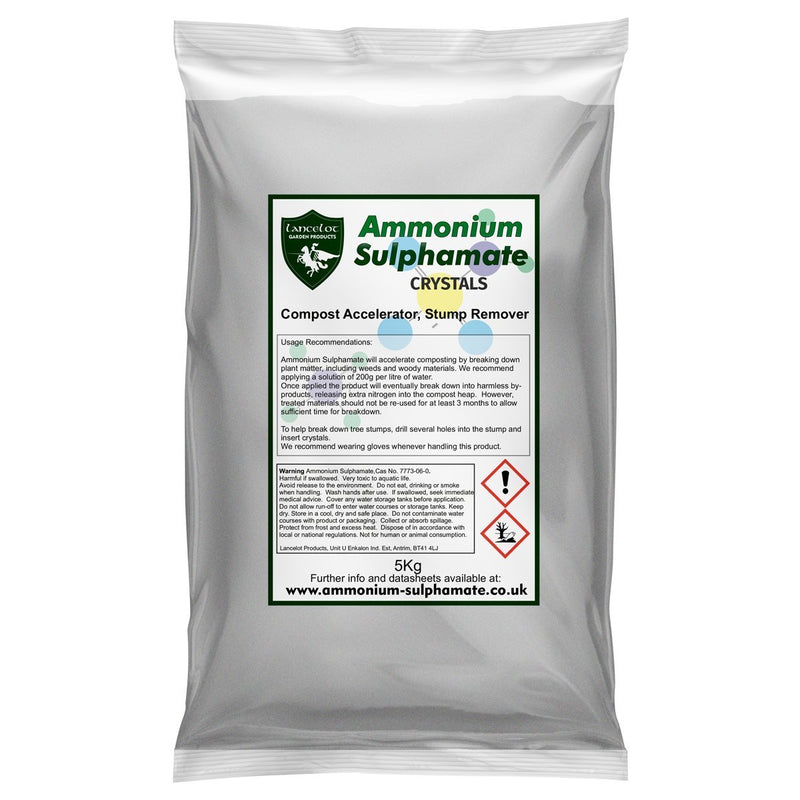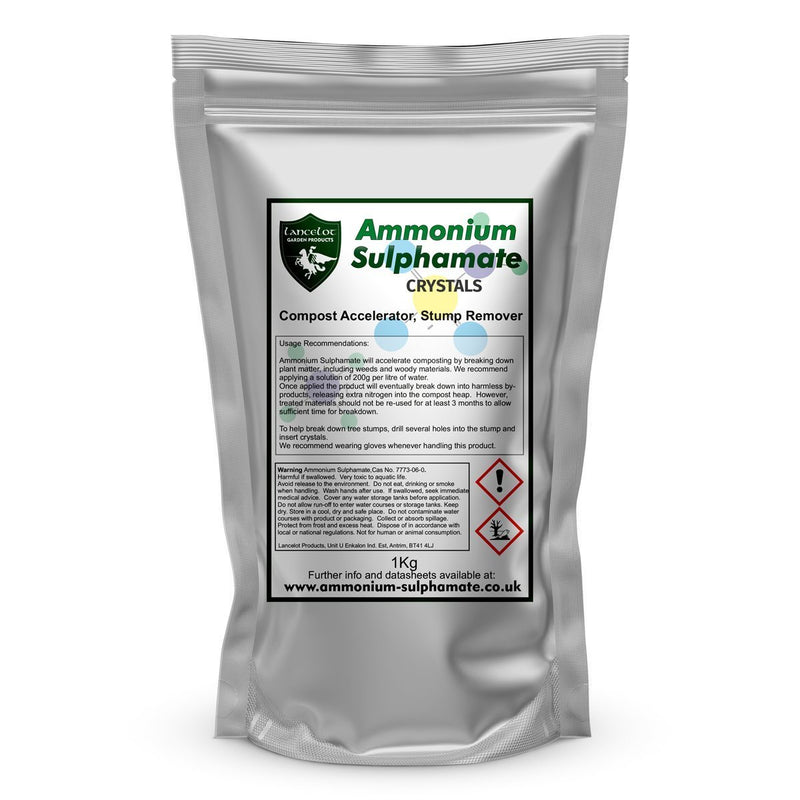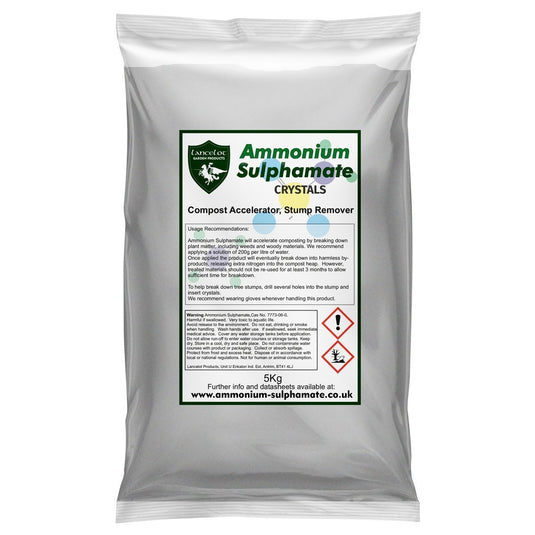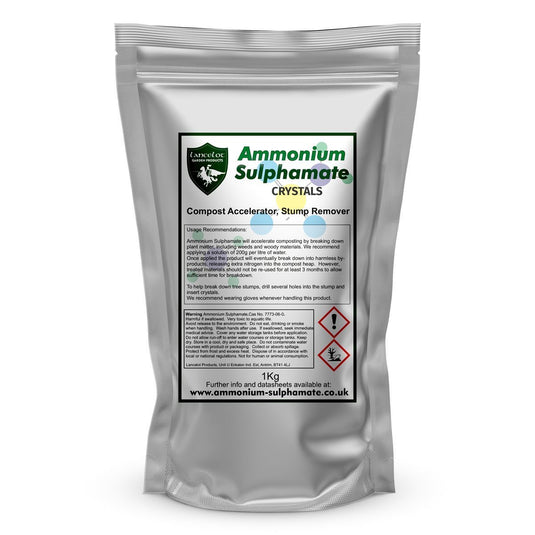

AMMONIUM SULPHAMATE
Ammonium Sulphamidate
Technical grade crystals
Now also available in NEW "easy to use" liquid form - 25% Ammonium Sulphamate Solution. Click here
AMMONIUM SULPHAMATE USES:
- As a flame retardant in various cellulosic products (textiles, paper and wood).
- Ammonium sulfamate is used as a compost accelerator. It is especially effective in breaking down the tougher and woodier weeds and vegetation put onto the compost heap. See below for more information)
- Accelerates the break down and rotting of tree stumps.
- As a reagent in laboratories.
- As a plasticiser
- Used in the printing industry
- In electro-plating
- As a herbicide (outside the EU) - Ammonium Sulphamate was once considered to be particularly useful in controlling tough woody weeds, tree stumps and brambles. However in 2008 the EU removed its approval as a registered herbicide and therefore it can no longer be advertised or sold explicitly for this purpose. We therefore do not sell ammonium sulphamate for this purpose. Its availability and use as a compost accelerator is unaffected by the EUs pesticide legislation.
Compost Accelerator Guide: Using Ammonium Sulphamate
Product Purpose:
Ammonium sulphamate is a nitrogen-rich compound used to accelerate the decomposition of high-carbon compost materials. It is especially effective in piles containing woody matter, dried leaves, or paper.
Your Compost Mix Example:
-
Grass clippings – 35%
-
Dried leaves – 25%
-
Kitchen waste – 20%
-
Wood chips – 20%
Estimated Overall C:N Ratio: ~45:1
Target C:N Ratio for Composting: 25–30:1
Recommended Application Rate:
To bring the compost pile to optimal decomposition conditions:
Add 9 to 10 kg of ammonium sulphamate per 1 cubic metre of compost.
Split into 2–3 doses:
-
Initial dose: At mixing/start
-
Second dose: After first turn (~7–10 days later)
-
Optional third dose: If pile cools too early or becomes inactive
Application Instructions:
-
Mix ammonium sulphamate evenly into the composting material.
-
Water lightly to help it dissolve and activate.
-
Turn pile weekly to maintain aeration and speed up decomposition.
-
Maintain moisture at 40–60% (feels like a wrung-out sponge).
Typical Results:
-
Decomposition time reduced by 30–50%
-
Faster heating and sustained microbial activity
-
Improved breakdown of woody materials
For improving the rotting of dead tree stumps drill holes in the stump before applying the crystals.
Properties of Ammonium Sulphamate:
- CAS No: 7773-06-0
- EINECS No: 231-871-1
- Formula: NH2SO3NH4
- MOL Wt: 114.12
- Ammonium sulphamate: 98.5%
- Sulphate: 0.05% max
- Chloride: 0.002% max
- Fe: 0.00014% max
- Toxicity: Oral rat LD50: >2000 mg/kg
- Physical state: solid, odourless, colourless crystals
- Melting Point: 131C
- Boiling Point: 160C decomposes
- Specific gravity: 1.7
- Solubility: 2800g/L
- Bulk Density: 1.026g/cm3
- pH (5% solution): 5.2
- Other Names: Ammonium sulphamidate, Ammonium Sulfamidate, SULFAMIC ACID AMMONIUM SALT; AMIDOSULFONIC ACID AMMONIUM SALT; AMINOSULFONIC ACID AMMONIUM SALT; AMMONIUM SULFAMATE; AMMONIUM SULPHAMATE; AMMONIUM AMIDOSULFATE; AMMONIUM AMIDOSULFONATE; AMMONIUM AMIDOSULPHATE, Amicide, Amidosulfate, Ammate, Amcide, Ammate X-NI, AMS, Fyran 206k, Ikurin, Sulfamate, AMS and Root-Out.
Click here to download safety Data Sheet MSDS
PLEASE NOTE: This product is not for human or animal consumption.

